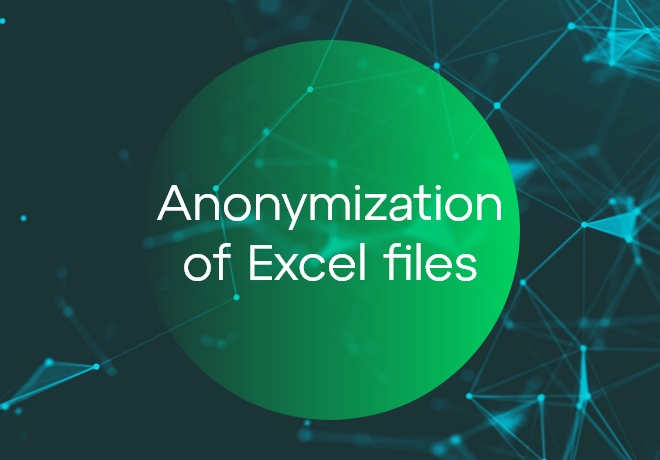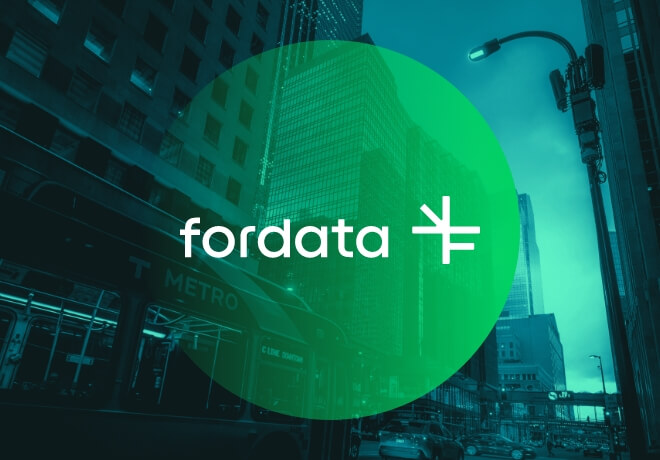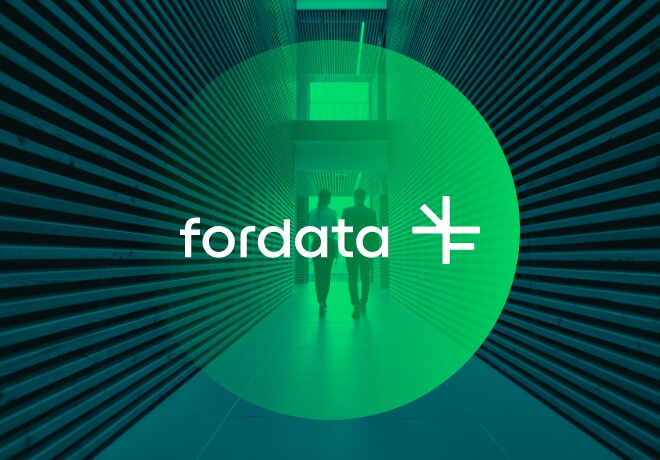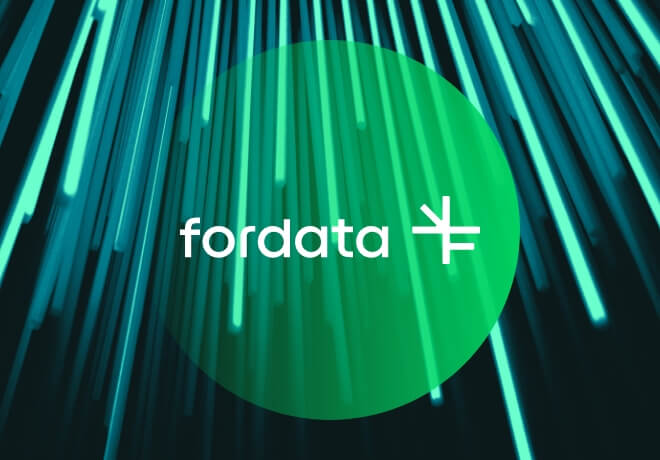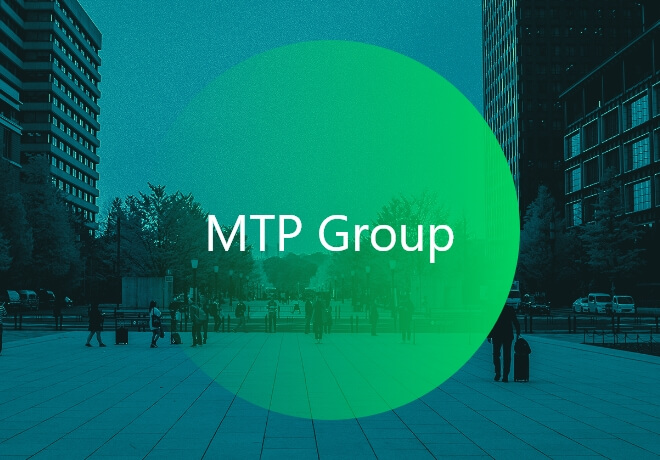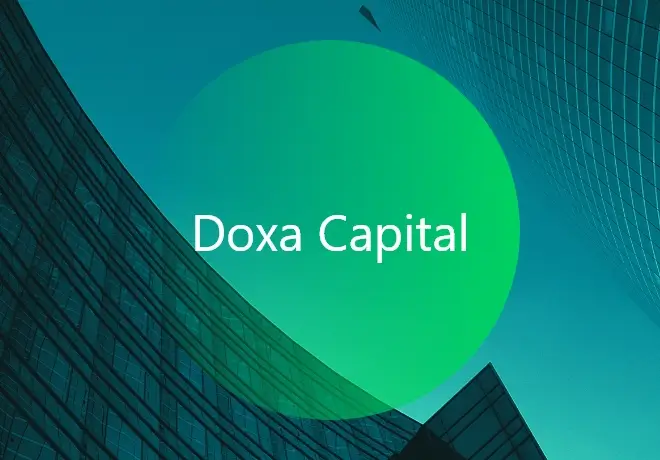18 . 04 . 2025
Virtual Data Room What is the difference between Cloud Storage and Virtual Data Rooms?
18 . 04 . 2025
- The Need For Digital File Storage
- Definition and Explanation of Cloud Storage
- Definition and Primary Uses of Virtual Data Rooms
- Key Considerations in Choosing a VDR Over Cloud Storage
- Factors to Consider When Deciding Between Cloud Storage and a VDR
- The Advantages of Cloud Storage for Different Business Needs
- Conclusion
Virtual Data Rooms and cloud storage tools have a lot in common but they are also very different. Both offer unique benefits and serve separate purposes. Understanding the nuances between them can be crucial for businesses and individuals alike. What are the key differences and use cases to remember?
In this article, we look into the essence of cloud storage and VDRs, allowing you to make an informed choice while choosing the best tool for data storage and file sharing.
The Need For Digital File Storage
Initially, businesses relied on physical documents and storage spaces, which were not only space-consuming but also challenging to manage and secure. The rise of digital storage revolutionized this landscape, introducing servers and on-premise data centers.
However, these solutions had their limitations, including high maintenance costs and limited accessibility. The breakthrough came with the introduction of cloud computing, which paved the way for cloud storage and Virtual Data Rooms, offering accessible and scalable data management options.
Introduction of Cloud Storage and VDRs
Cloud Storage is a service model that allows users to store data on the internet, using a cloud computing provider’s servers (also hybrid). This model offers vast storage options, data protection, and the ability to access files anytime, anywhere, provided there’s an internet connection.
Cloud storage has become a staple for personal use, businesses, and organizations, facilitating file sharing, data backup, and collaborative work.
Virtual Data Rooms, on the other hand, are secure online repositories used primarily for storing and sharing confidential data and documents. They are essential in Due Diligence processes, Mergers and Acquisitions, and any scenario where sensitive data needs to be shared securely with external parties.
VDRs offer advanced security measures, permission settings, and document management features, making them a go-to solution for high-stakes transactions and confidential information handling.
Understanding the Difference for Businesses and Individuals
For businesses and individuals navigating the digital environments, choosing the right storage solution is paramount. The decision between cloud storage and a Virtual Data Room hinges on:
- Specific needs of data management
- Security requirements
- The nature of the data being stored and shared
While cloud storage offers a flexible and cost-effective way to store and access data, VDRs provide a secure environment for sharing sensitive information during critical business processes. Understanding these differences is crucial in making an informed decision that aligns with one’s data security, accessibility, and management needs.
In the following sections, we will explore the intricacies of cloud storage and VDRs – also referred to as dealrooms – their key features, and how to choose the right solution based on your specific requirements.
Stay tuned to uncover the nuances that differentiate these two essential digital storage solutions and how they can be leveraged to safeguard and manage data effectively.
Definition and Explanation of Cloud Storage
Cloud storage is a model of computer data storage that gives users a secure, scalable, and reliable way to store data and offers several features that make it an attractive option for both personal and business use.
Cloud storage solutions operate on servers containing user data. These servers are maintained, operated, and managed by cloud storage providers. Such a setup allows users to access their data anytime and anywhere, provided they have an internet connection.
Key Features of Cloud Storage Solutions
Cloud storage solutions come packed with a range of features designed to meet diverse needs. Some of the standout features include:
Data redundancy and backup
Cloud storage automatically replicates data across multiple servers, ensuring that your information is safe, even in the event of hardware failure.
Scalability
Users can easily scale their storage requirements up or down, depending on their needs, without worrying about the physical limitations of traditional storage systems.
Accessibility and synchronization
Data stored in the cloud can be accessed from any device with an internet connection, ensuring that users have their files whenever they need them. Additionally, cloud storage allows for the synchronization of data across devices, keeping files up-to-date across all platforms.
Data security
Cloud storage providers implement robust security measures, including encryption, to protect data from unauthorized access and cyber threats.
The Role of Cloud Storage in Data Management and File Sharing
Cloud storage has revolutionized data management and file sharing.
- For businesses, it facilitates collaboration among team members by allowing them to share files easily and work on documents simultaneously, regardless of their location.
- For individuals, it provides a convenient way to back up personal data, such as photos, videos, and important documents, ensuring that their memories and critical information are preserved safely in the cloud.
Examples of Cloud Storage Providers
Several reputable cloud storage providers offer a range of services tailored to meet different needs. Some of the most well-known include:
Google Drive
Offers a seamless integration with Google’s suite of productivity tools, making it an good option for collaboration and document management.
Dropbox
Dropbox is known for its user-friendly interface and efficient file synchronization, and is popular among individuals and businesses for file sharing and collaboration.
Microsoft OneDrive
Integrated with Microsoft Office, OneDrive provides a robust solution for businesses that especially rely on Microsoft’s ecosystem for their productivity needs.
Amazon Web Services
AWS offers scalable, secure, and high-performance cloud storage solutions for businesses and developers looking for an enterprise-grade storage option.
Definition and Primary Uses of Virtual Data Rooms
A Virtual Data Room is a secure online repository used for storing and sharing confidential data and documents. VDRs have become an indispensable tool in the world of high-stakes transactions and sensitive information sharing. Unlike standard cloud storage solutions, VDRs are designed with the utmost security and functionality in mind, catering specifically to the needs of Due Diligence, M&As, and other sensitive business processes.
Unlike traditional cloud storage, VDRs are equipped with:
- Advanced security measures
- Detailed permission settings
- Industry-specific document management features
How VDRs Support Due Diligence and M&A Activities
During the Due Diligence process, VDRs serve as a secure platform where all necessary documents can be stored, organized, and made accessible to authorized parties.
This centralized access significantly streamlines the review process, allowing for a more efficient evaluation of the target company and deal closure.
The VDR’s structured environment enables parties to conduct a thorough evaluation process, ensuring that all aspects of the transaction are transparent and under control. For M&A activities, VDRs not only expedite the process but also provide a layer of security that is critical in handling sensitive financial data and other confidential information.
The Importance of Data Security and Permission Settings in VDRs
One of the key differentiators of VDRs is their robust data security and user permission frameworks.
- VDR providers implement several layers of security, including data encryption, dynamic watermarks, and two-factor authentication, to protect against unauthorized access and data breaches.
- Additionally, VDRs allow for granular permission settings, enabling the administrator to control who can view, edit, or download documents.
This level of control is crucial in maintaining the integrity of the data and ensuring that only relevant stakeholders have access to specific pieces of information.
Virtual Data Rooms’ Unique Offerings
Virtual Data Room providers offer a range of services tailored to the specific needs of businesses engaging in complex transactions and confidential projects.
Providers like Fordata emphasize not only the security and efficiency of their platforms but also the support and customization they offer to clients, with features such as automatic document anonymization, detailed activity reporting, and the ability to manage permissions flexibly, catering to the unique requirements of Due Diligence and other confidential activities.
Moreover, with 24/7 professional support, clients can navigate their VDR with ease, focusing on the transaction at hand while the technical aspects are handled by experts.
In conclusion, Virtual Data Rooms are a critical asset for businesses involved in transactions where confidentiality and data security are paramount. With their advanced security features, permission controls, and dedicated support, VDRs go beyond the capabilities of standard cloud storage, offering a specialized solution for managing sensitive data and documents.
Key Considerations in Choosing a VDR Over Cloud Storage
When faced with the decision of selecting a digital storage solution, businesses and individuals must weigh several key factors. This section explores the critical considerations to guide you in making an informed decision that aligns with your requirements.
Due Diligence Process and the Need for Secure Document Management
For organizations engaged in Mergers and Acquisitions, fundraising, audits, or any activity requiring thorough Due Diligence, the choice should lean towards a VDR. The Due Diligence process demands a secure environment where sensitive documents can be shared with stakeholders without risking data breaches.
VDRs are designed with this in mind, offering advanced security features, detailed activity tracking, and permission controls that surpass the capabilities of standard cloud storage solutions.
If your project involves handling sensitive financial data, intellectual property, or any confidential information, a VDR provides the secure document management necessary for successful Due Diligence.
Storing and Sharing Confidential Data
Security is paramount when choosing between cloud storage and VDRs, especially when dealing with confidential data. While cloud storage services offer encryption and basic security measures, VDRs go a step further by providing enhanced data protection features such as dynamic watermarks, two-factor authentication, and the ability to set detailed user permissions.
These security measures ensure that sensitive data is not only stored securely but also shared safely, minimizing the risk of unauthorized access or data leaks. For projects requiring the highest level of security and confidentiality, a VDR is the preferred choice.
Data Protection and Data Security in Cloud Storage and VDRs
Both cloud storage and VDRs prioritize data protection and security, but the level and sophistication of protection vary.
- Cloud storage is typically designed for broader use cases, offering a standard yet sufficient level of security, suitable for general data storage needs.
- VDRs cater to specific scenarios where data security is critical, providing tailored security features for protecting sensitive information.
When evaluating your options, consider the nature of the data you’re managing. If your focus is on storing and sharing general data with a standard security requirement, cloud storage may suffice. However, for industries and projects where data sensitivity is a concern, the specialized security features of a VDR are indispensable.
The Impact of Data Breaches and the Importance of Choosing the Right Solution
The consequences of a data breach can be devastating, ranging from financial losses to reputational damage. Choosing the right storage solution plays a crucial role in mitigating these risks. Cloud storage solutions, while secure, may not offer the same level of protection and control as VDRs in the context of highly confidential projects.
It’s essential to assess the potential risks associated with your data and choose a solution that provides adequate protection. For high-stakes transactions and sensitive information sharing, the robust security framework of a VDR can offer peace of mind and significantly reduce the risk of data breaches.
Factors to Consider When Deciding Between Cloud Storage and a VDR
Nature of the data
Assess the sensitivity of the data your business handles. If you’re dealing with highly confidential information, such as sensitive financial data, trade secrets, or personal data subject to regulatory compliance, a VDR’s enhanced security features might be necessary.
Collaboration needs
Consider how your team collaborates and shares documents. Cloud storage solutions like Google Drive or Dropbox offer excellent tools for real-time collaboration and file sharing across teams. If your primary need is facilitating day-to-day operations and collaboration, cloud storage will be sufficient.
Regulatory compliance
Certain industries are subject to strict data protection regulations. If your business operates in such sectors, the advanced security and compliance features of a VDR can help meet these requirements more effectively than standard cloud storage options.
Budget constraints
While budget should not be the only consideration, it’s important to evaluate the cost-effectiveness of each solution. Cloud storage generally offers more flexible pricing models suitable for a range of budgets, whereas VDRs, with their advanced features, might come at a higher cost.
The Advantages of Cloud Storage for Different Business Needs
Cloud storage solutions are known for their versatility, ease of use, and cost-effectiveness. They are ideal for businesses looking for a scalable and flexible storage option that supports file sharing and collaboration across teams. With features like unlimited storage options, file versioning, and third-party integrations, cloud storage can significantly enhance productivity and efficiency for businesses with general data storage and collaboration needs.
Conclusion
In sum, the choice between cloud storage and a Virtual Data Room should be informed by your business’s specific needs, the nature of the data you handle, and the criticality of security and compliance in your operations.
Be careful to assess the above factors, so you can make an informed decision that not only safeguards your data but also supports your business objectives and operational needs.
Whether you choose cloud storage for its flexibility and collaboration features or a VDR for its advanced security and control, it’s key to understand the strengths and limitations of each option.
Did you like the article?

My experience in international business allows me to take on the toughest challenges. I value a collaborative approach and a high level of professionalism in partnerships. I am passionate about traveling and discovering new places, which not only brings me joy but also enriches my life with new experiences and perspectives.
Do you want to exchange knowledge or ask a question?
Write to me : Tatiana Polupan page opens in new window
Virtual Data Room in Mergers and Acquisitions - A Perfect Match
TEST FREE TEST FREE-
01 . VDR im Due-Diligence-Prozess

M&A-Transaktionen sichern strategische und finanzielle Vorteile – von Markterweiterung bis Skaleneffekten. Grundvoraussetzung für den Erfolg: ein sorgfältiger Due-Diligence-Prozess.
08.01.2026
-
02 . Virtual Data Room: Alles, was Sie wissen müssen

Der Markt für VDRs wächst rasant – von M&A-Transaktionen hin zu vielfältigen Unternehmensanwendungen. Ihr Hauptziel: maximale Sicherheit beim Austausch sensibler elektronischer Informationen.
19.12.2025
-
03 . VDR vs. Popular Cloud Drives – 5 Key Differences That Matter in Business Transactions

Many organizations still believe that popular cloud drives such as Google Drive, OneDrive, or SharePoint are sufficient for sharing confidential documents.
27.08.2025
-
04 . FORDATA - Outstanding Customer Service!

At FORDATA, flexibility and a personalized approach to each client are part of our everyday work – we operate the way you need us to.
13.08.2025
-
05 . How Virtual Data Rooms Benefit Law Firms and Financial Institutions

Virtual Data Rooms benefit financial institutions and legal teams profoundly. See how a VDR can secure data management and compliance.
26.05.2025
-
06 . Challenges of Due Diligence: How Virtual Data Rooms Enhance Its Efficiency and Security

Virtual Data Rooms can turn Due Diligence into a safe and efficient process. Here’s what you need to know.
14.05.2025
-
07 . Top 10 Features To Look For In A Virtual Data Room For Due Diligence

What are the key features to look for in a VDR to streamline your Due Diligence process? Find it out in the article.
30.04.2025
-
08 . Pharmaceutical and Medtech uses of Virtual Data Rooms

Virtual Data Rooms have emerged as a crucial technological asset across various industries, including Life Sciences, chiefly due to their ability to offer secure, efficient, and reliable data storage and sharing capabilities.
08.04.2025
-
09 . Understanding Virtual Data Rooms: Key Features and Benefits

What features to look for in a Virtual Data Room and what benefits do they bring? Secure online Due Diligence is here.
03.04.2025
-
10 . Business, Secure File Sharing, and Virtual Data Rooms - The perfect combination

Learn why Virtual Data Room is the perfect tool for secure file transfer in a business environment. Protect sensitive information of your company.
26.03.2025
-
11 . What Is a Virtual Data Room (VDR) and How Does It Work?

VDRs removed the limitations of traditional data rooms, offering a secure online space where confidential data can be accessed by authorized users from anywhere in the world.
10.03.2025
-
12 . How does a VDR help minimise risk and increase transaction value in the TMT sector?

The TMT industry is constantly subject to M&A processes. Learn how VDR helps minimize risk and increase transaction value in the TMT sector. Discover the benefits and challenges of using it in M&A processes.
09.12.2024
-
13 . How to effectively choose a VDR supplier step by step

Choosing a Virtual Data Room provider is a decision that is crucial to the security, efficiency and flow of business transactions.
03.12.2024
-
14 . New Feature in Virtual Data Room: Online Document Translation in 59 Languages

Discover Fordata VDR’s new feature for instant, secure online document translation in 59 languages. Be prepared for international transactions and ensure the highest level of security and confidentiality.
28.08.2024
-
15 . When is it time for a VDR?

From merger and acquisition processes, to financial audits, to the acquisition of investors or the implementation of infrastructure projects, each of these activities requires not only precise data management, but also its protection from unauthorised access.
22.08.2024
-
16 . The formula for a successful M&A process

A successful M&A process is the result of a synergy of many components. Successfully executing a merger or acquisition can be the key to gaining a competitive advantage and even surviving in the market.
19.08.2024
-
17 . Serial M&A acquisitions in a nutshell - good practices and technology

Both serial and single buy-side M&A processes play an important role in companies’ development strategies. However, they differ in purpose, scale and approach, which determines their importance for the company.
15.07.2024
-
18 . The fastest VDR in the industry - new improvements in Fordata system

The June system update significantly accelerated the operation of key functions, ensuring even more effective work and speed of dealmaking. The new VDR engine enables smooth management of projects larger than 100 GB.
28.06.2024
-
19 . New feature - Excel file anonymization and more!

From now on, VDR’s built-in Redaction Tool will automatically anonymise documents in 18 different formats, including Excel, Word, Pdf files.
25.03.2024
-
20 . AI-Powered Redaction Tool - big premiere

Reduce redaction time and increase accuracy with artificial intelligence (AI) support. AI-Powered Redaction tool is available in Fordata VDR.
26.02.2024
-
21 . Can Microsoft One Drive or Google Drive replace VDR?

Can Microsoft’s and Google’s Drive replace VDR? Popular storage clouds are convenient but can they provide the same level of security?
29.12.2023
-
22 . Welcome to Our In-Built Redaction Tool

In-built Redaction Tool is here. Redact content right inside the VDR without sacrificing security.
30.10.2023
-
23 . Zero technical requirements - meet Fordata VDR 6.0

We have introduced new features to our Virtual Data Room system. Fordata Data Room version 6.0 is now available.
15.05.2023
-
24 . How does Avallon conclude investments with VDR?

How do #FORDATAteam help Avallon conduct the investment processes (including MBO, LMBO) and divestments more efficiently?
14.11.2022
-
25 . We protect the largest number of file types in the industry. How exactly?

FORDATA Secure Viewer now with the new file protection. Securely view DOCX, XLSX, JPG, PDF and more. We protect over 30 file formats.
17.09.2021
-
26 . How a pharmaceutical company optimized confidential data flow

Pharmaceutical companies of all sizes can optimize mulitple procesesses with one Virtual Data Room tool. How?
24.03.2021
-
27 . New functions in the Virtual Data Room system

In recent weeks we have implemented several new functionalities in the Virtual Data Room system. Thanks to them, viewing the structure of…
24.02.2021
-
28 . Tender under control - case study of MTP Group

Selling commercial real estate is quite a challenge. How to sell a plot of land faster, more conveniently and with full control?
16.10.2020
-
29 . Virtual Data Room in Life Sciences - supporting efficiency

Effective management in Life Sciences? Virtual Data Room means faster drug licensing, registration, strategic alliances and full data security and control.
21.07.2020
-
30 . Investment adviser accelerated the Due Diligence process

Doxa Capital uses the FORDATA VDR system to secure, simplify and accelerate Due Diligence processes. How did data room support the transaction’s success?
07.07.2020
-
31 . How to choose Virtual Data Room effectively?

Tailor VDR to your needs! What to look for when choosing a Virtual Data Room? Meet VDR Lite and perform an audit, restructuring or cooperate with the law office.
10.06.2020
-
32 . Virtual Data Room: Everything you need to know

What is a virtual data room? What benefits can we achieve by using the system in merger and acquisition transactions?
25.10.2017
-
33 . How can we help you with Due Diligence?

Time plays a major role in M&A transactions. Even the smallest improvement that saves time needed to prepare and perform Due Diligence…
10.03.2014



















